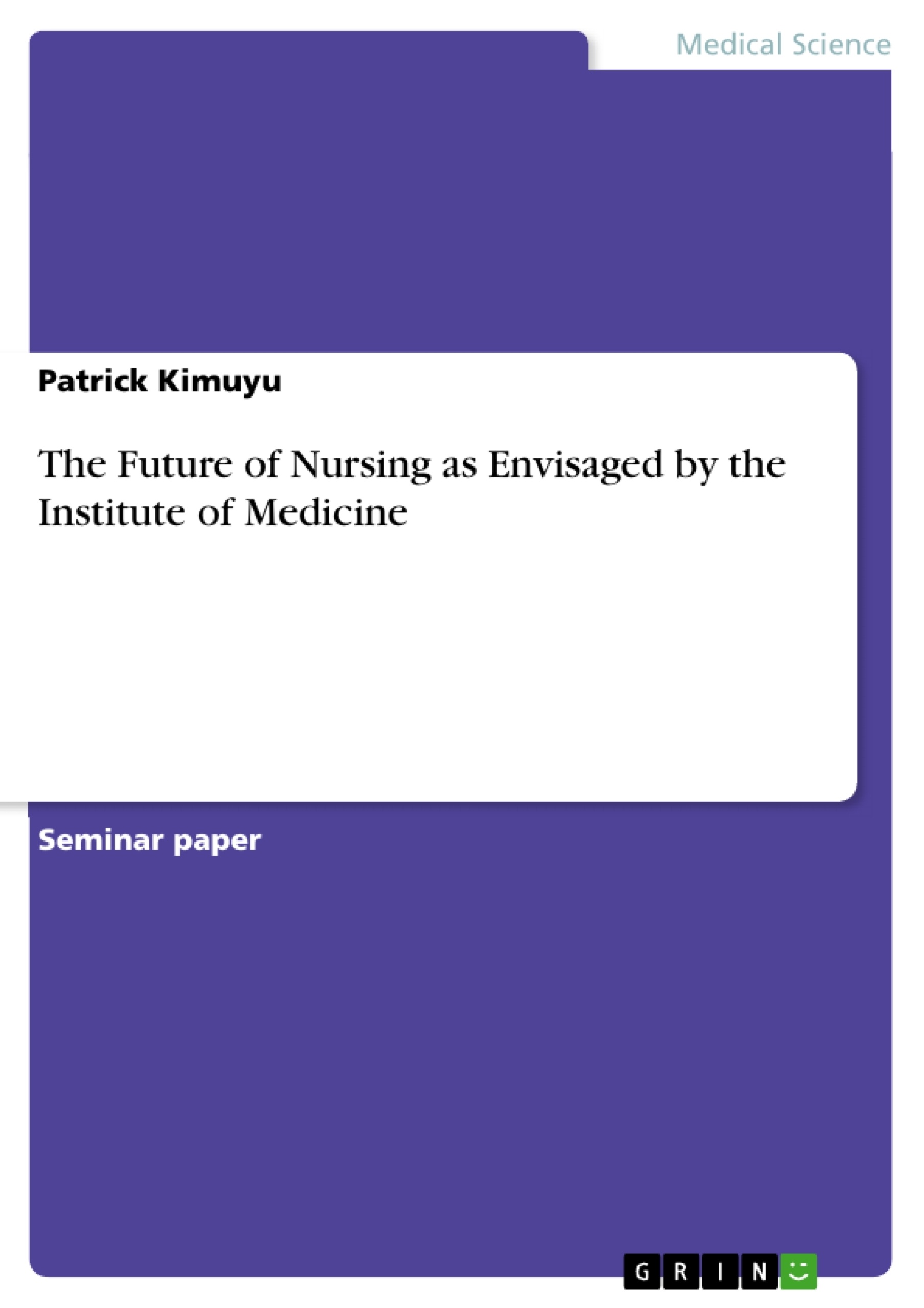In the recent years, nursing education and practice appear to have been influenced by the current healthcare reforms. The Affordable Care Act has introduced cross-sectional changes in the US healthcare system. For instance, it has led to an increase in the number of uninsured people by introducing universal healthcare under the reviewed health insurance plans. It is predicted that “expanding the reach of insurance coverage will place greater demands on the primary care system, as witnessed in Massachusetts” (IOM, 2010a). Consequently, the scope of healthcare services has experienced immense changes ranging from patient’s privacy protection as it is defined by HIPAA to the treatment of degenerative diseases. IOM observes “primary care medical homes and accountable care organizations (ACOs)—rely on interventions that fall squarely within the scope of practice of RNs (e.g., care coordination, transitional care)” (p.375). Owing to these changes in the US healthcare system, transient reforms in the nursing profession are deemed necessary for addressing the vast needs of the US population, and this explains the importance of the 2010 Institute of Medicine’s recommendations. Evidence indicates that, the nursing profession plays the pivotal role in the healthcare system because it accounts for the largest percentage of the healthcare workforce. As such, introducing transformations in the nursing profession appear to be as significant as the Affordable Care Act, especially regarding the improvement of healthcare service delivery. Therefore, this research paper will provide a comprehensive overview on the impact of IOM recommendations on the nursing profession including the key messages.
Table of Contents
- Introduction
- Key Messages
- Key Message #1
- Key Message #2
- Key Message #3
- Key Message #4
- Recommendations
- Recommendation #1
- Recommendation #2
- Recommendation #3
- Recommendation #4
- Recommendation #5
- Recommendation #6
- Recommendation #7
- Recommendation #8
Objectives and Key Themes
This research paper aims to provide a comprehensive overview of the impact of the Institute of Medicine's (IOM) recommendations on the nursing profession, particularly in light of the Affordable Care Act (ACA) and its reforms on the US healthcare system. It explores how the IOM's key messages and recommendations can transform the nursing profession and contribute to the delivery of high-quality, patient-centered healthcare services.
- The pivotal role of nurses in the US healthcare system.
- The need for nurses to utilize their full professional potential in service delivery.
- The importance of improved nursing education and training for quality healthcare.
- The transformation of nursing leadership and its impact on the healthcare system.
- The need for a robust information infrastructure to support workforce planning and efficient healthcare delivery.
Chapter Summaries
The introduction emphasizes the significance of the IOM's recommendations in addressing the challenges posed by the ACA reforms on the US healthcare system. It underscores the critical role of nursing in delivering quality healthcare and the need for transforming the nursing profession to meet these challenges.
The "Key Messages" section highlights four crucial points for the transformation of the nursing profession. These messages emphasize the need for nurses to utilize their full professional potential, achieve higher levels of education and training, embrace leadership roles, and work within an improved information infrastructure.
The "Recommendations" section outlines eight specific recommendations proposed by the IOM to achieve the desired transformation in the US healthcare system. These recommendations aim to address areas such as scope of practice, nursing education, leadership development, and data collection for workforce planning.
Keywords
The primary keywords and focus topics of this text include nursing profession, healthcare reforms, Affordable Care Act, Institute of Medicine recommendations, scope of practice, nursing education, leadership development, information infrastructure, workforce planning, and patient-centered care.
- Quote paper
- Patrick Kimuyu (Author), 2018, The Future of Nursing as Envisaged by the Institute of Medicine, Munich, GRIN Verlag, https://www.grin.com/document/431376




